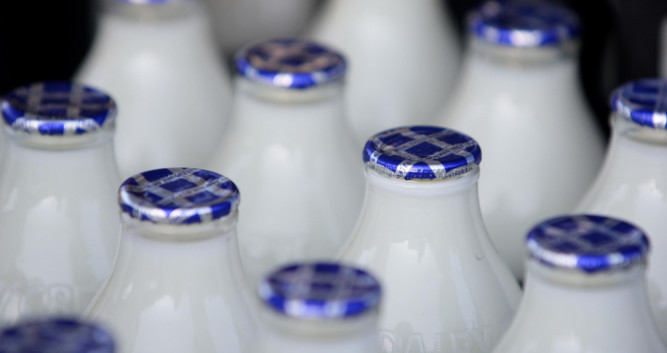
Government food bosses have stalled on controversial plans to allow raw milk to be sold in vending machines.
The Food Standards Agency last week met to consider a plan to allow unpasteurised milk to be sold from vending machines throughout England, Wales and Northern Ireland.
The move follows a surge in popularity for the untreated white stuff, after chefs and celebrities claimed it tastes better than normal milk. But its sale has been heavily restricted as it may contain deadly bacteria such as salmonella and E.coli.
In Scotland it has been banned altogether for more than 30 years, following a Sunday Post campaign sparked by a series of deaths linked to raw milk.
During last week’s FSA board meeting, bosses deferred a decision because they do not have enough evidence to give it the green light.
Last night, microbiologist Prof Hugh Pennington welcomed the development saying: “I think common sense has prevailed. It is not being completely ruled out but they have kicked it into touch for now.”
Currently, raw milk can only be bought directly from farmers in England, but the proposals brought before the FSA, would see it made available widely in refrigerated vending machines which would enable the temperature and stock to be closely monitored.
It has grown in popularity over recent years with chefs and celebrities, including actor Martin Sheen, claiming it tastes better than treated milk.
But in Scotland all sales of unpasteurised milk have been banned since 1983. In 1982 alone there were 539 outbreaks of food-borne disease related to raw milk, including one death and 12 potentially associated deaths. Scotland later became the first country in Europe to be declared free of the related disease brucellosis.
Last week’s FSA board meeting concluded no decision should be made until further tests had been carried out and guidance sought from Europe.
A spokesman said: “The board said a final decision should not be made until the European Food Safety Authority has delivered the findings of its own review of the risks from raw milk, which is expected in December 2014.”
The deferral followed concerns raised by Dairy UK, the industry body for dairies which warned it could put the public at risk.
Prof Pennington claimed it would be almost impossible to gather proof that raw milk is safe.
He added: “I am not at all convinced anybody would be able to demonstrate the risk is so low they would be able to do this.”

Enjoy the convenience of having The Sunday Post delivered as a digital ePaper straight to your smartphone, tablet or computer.
Subscribe for only £5.49 a month and enjoy all the benefits of the printed paper as a digital replica.
Subscribe